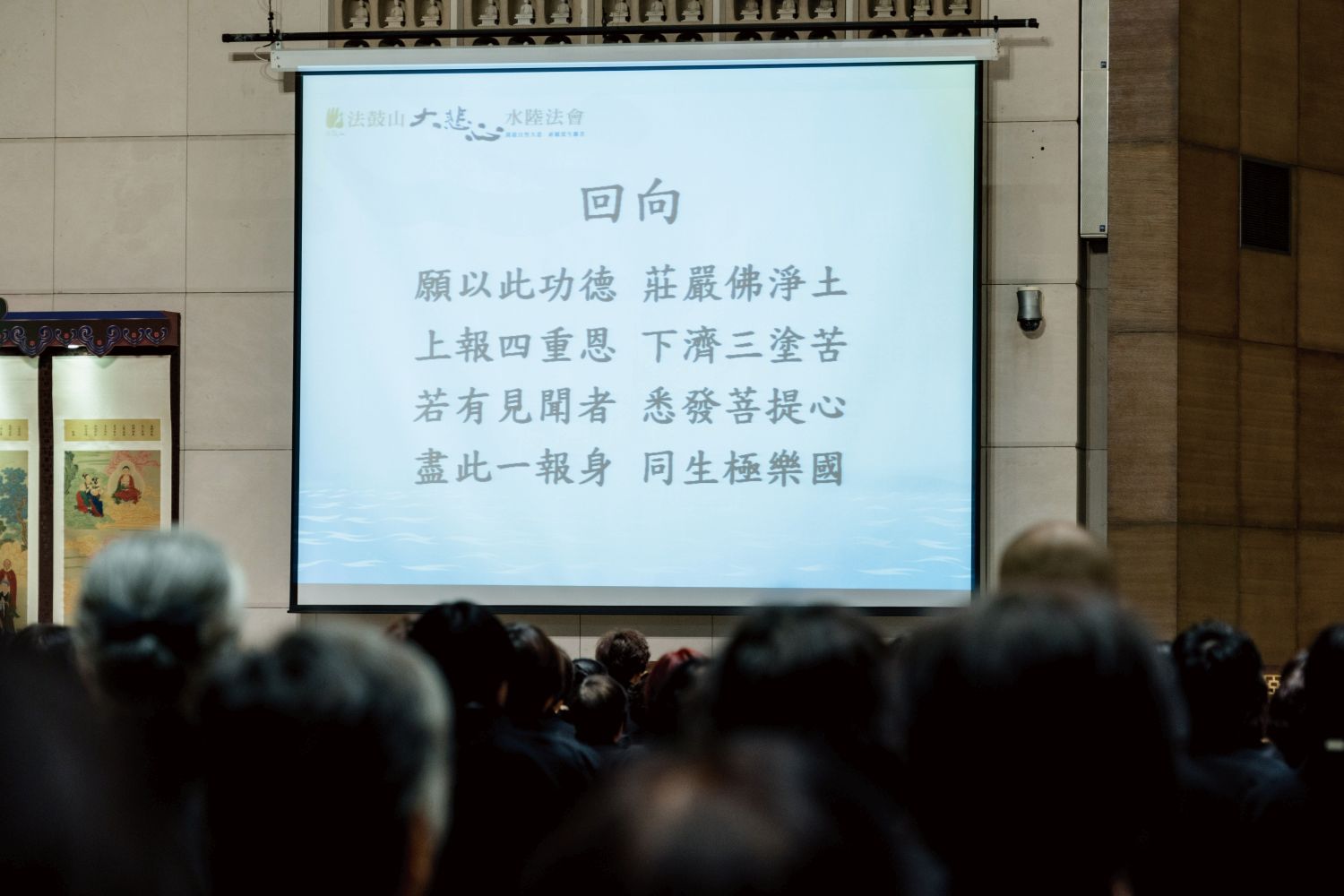Special Topics
Compassionately delivering sentient beings, dedicating the merit for supreme Bodhi
 From the era of sectarian Buddhism to the Mahayana Buddhist tradition, the concept of merit transfer and its recipients has deepened and expanded, with a particular emphasis on the Bodhisattva path. As a result, transfer of merit is no longer limited to friends and family, but has expanded to include all sentient beings. Furthermore, the aims of merit transfer are not limited to individual liberation, but also encompass achieving the ultimate goal of the Buddhist path. At the same time, merit transfer has risen in importance as a method of Dharma practice.
From the era of sectarian Buddhism to the Mahayana Buddhist tradition, the concept of merit transfer and its recipients has deepened and expanded, with a particular emphasis on the Bodhisattva path. As a result, transfer of merit is no longer limited to friends and family, but has expanded to include all sentient beings. Furthermore, the aims of merit transfer are not limited to individual liberation, but also encompass achieving the ultimate goal of the Buddhist path. At the same time, merit transfer has risen in importance as a method of Dharma practice.Among the fifty-two stages of the Bodhisattva path, the "ten stages of transference" are above the ten stages of faith, abiding, and practice. When the cultivation of the ten stages of transference is thoroughly completed, one will reach the ten grounds ofthe Bodhisattva path. So what is the essence of the Dharma methods for the ten stages of transference? In brief, starting from generating the Bodhi mind, it involves the cultivation of the Six Perfections (Pāramitā), the Four Embracing Virtues (catuḥsaṃgraha-vastu), and the Four Immeasurables (apramāṇa-citta); that is, treating friends and foes alike, benefitting all sentient beings, and, ultimately, reaching a level of wisdom in accordance with that of the Buddha.
As Qi-ying Chen, adjunct assistant professor at Ming Chuan University, pointed out, "If we divide our spiritual cultivation into the three aspects of body, speech, and mind, then the practice of merit transfer is not about exerting effort in terms of physical or verbal actions, but rather about transforming our mental actions." "By breaking the mentality of our selfish ego and transferring accumulated merit not only to others but to all sentient beings in the Dharma realms and the realm of emptiness, we can reverse our selfish thinking that has persisted since beginningless time."
Take the vow of "universally transferring merit to all" for example, the last of Bodhisattva Samantabhadra's ten great vows, as stated in the Chapter on the Practices and Vows of Bodhisattva Samantabhadra of the Avatamsaka Sutra. The purpose of this vow is to urge us to dedicate the merit of paying homage to various Buddhas, as well as engaging in all kinds of virtuous practices to sentient beings in the Dharma realms throughout the universe, allowing them to attain liberation, while being free of self-attachment ourselves.
Extended reading:
Transfer of Merit –The Practice of Generating a Great Mind
The Transfer of Merit: the Giving of Dharma that could be Practiced at any Time
What Buddhist Scriptures Reveal about the Evolution of Merit Transfer
Dedicating the merit for attainment of nirvana is superior to praying for karmic blessing in the human and heavenly realms
To practice the Buddhist teaching is to transfer merit in its true sense
Compassionately delivering sentient beings, dedicating the merit for supreme Bodhi
Dedication verses commonly seen in the Chinese Buddhist tradition
Tibetan Buddhism: The most sublime chapter on the Practices and Vows of Bodhisattva Samantabhadra
Q1: How is merit transfer different from the blessings we give to others in our everyday life?
Q2: Must we first accumulate merit before we can transfer it to others?
Q3: Would it matter if I don't transfer merits after chanting?
Q4: When we transfer the merit generated from self-cultivation to our family, friends, and deceased loved ones, can they really receive it?
Q5: Should we still transfer merit to specific people after we have already transferred it to all sentient beings in the Dharma realm?
Q6: The terms "making vows" and "transfer of merit" are often used alongside each other in Mahayana Buddhist scriptures. What are the differences between them?
Q7: Are there corresponding dedication verses for different Dharma methods? Can these dedication verses be used interchangeably?
Resource: Humanity Magazine Issue #413
Photo: Humanity Magazine Issue #413
Translation: Ariel Shen
Editing: Keith Brown, Chiacheng Chang
